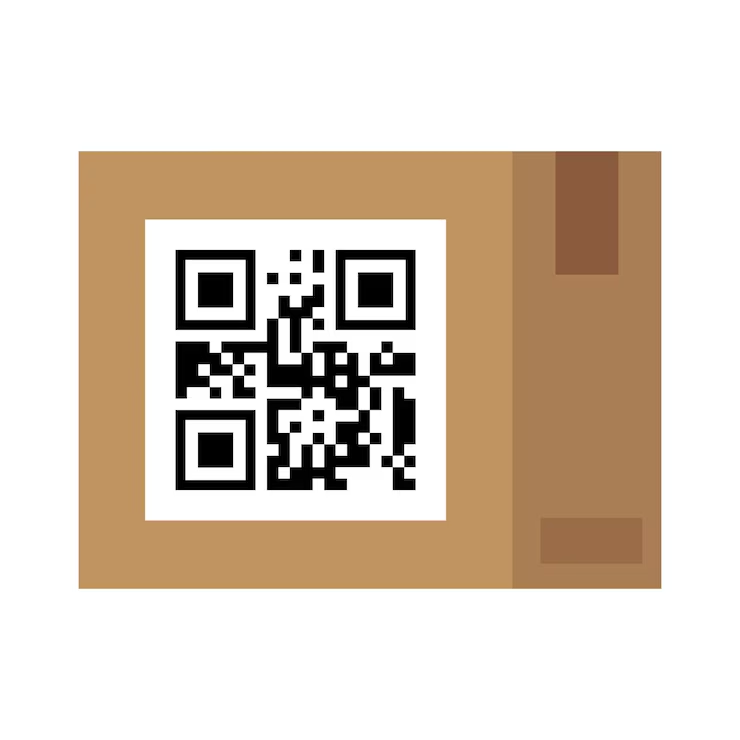
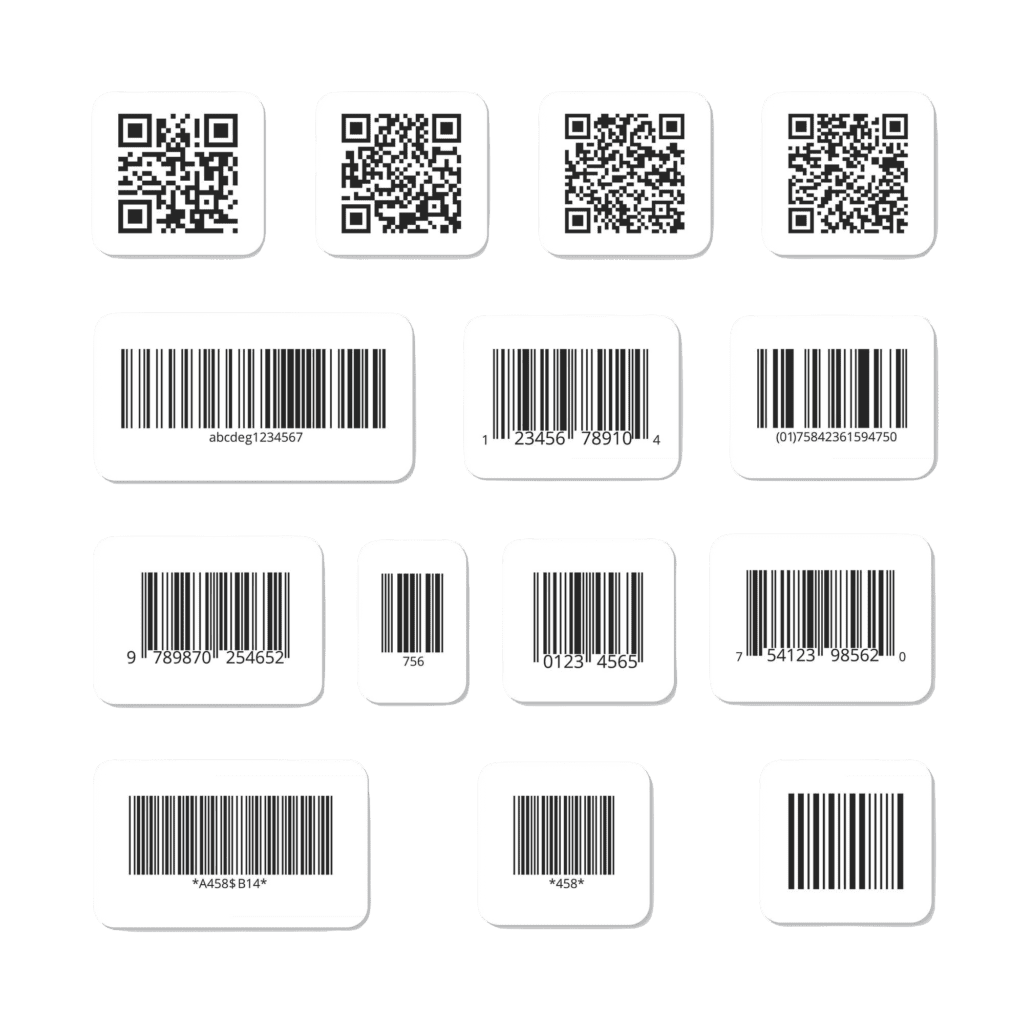
A QR code (short for Quick Response code) is a type of two-dimensional barcode that can store a large amount of information in a small, square-shaped image. Unlike traditional barcodes, which only store data in one direction (horizontal), QR codes store information both horizontally and vertically, allowing them to hold more data. Barcode International is the provides serves best as a QR Code Barcode Manufacturer.
QR codes provide an easy and fast way for users to interact with digital content just by scanning with a phone or scanner.
Barcode International manufacture QR barcode labels for cartons, mono-cartons, products in serialization series. We are QR Code Barcode Manufacturer in India. We serves all areas, regions India.
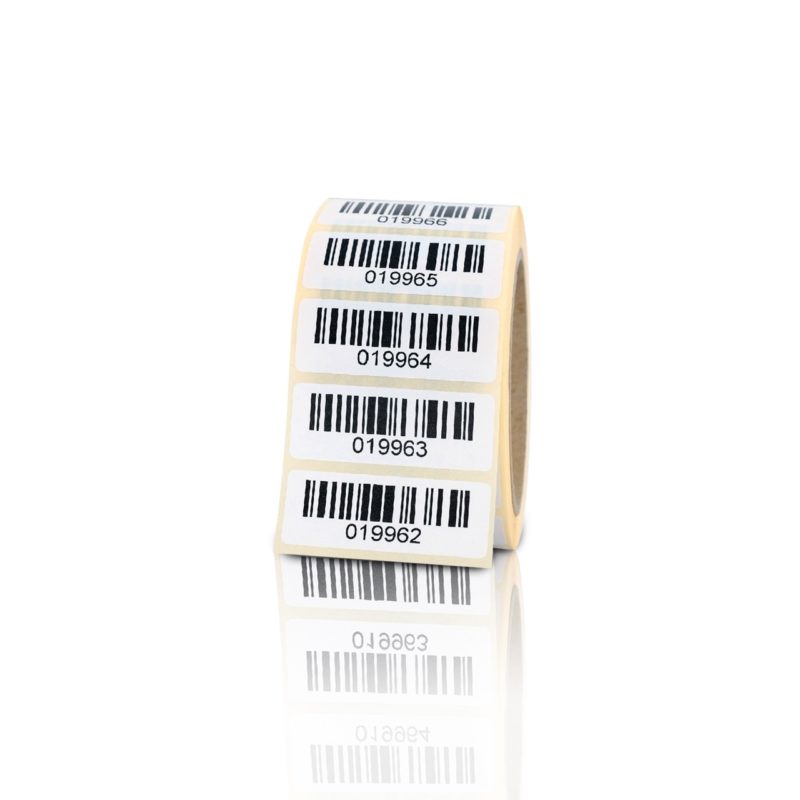
How Does a QR Code Work?
A QR code consists of a matrix of black and white squares arranged in a square grid pattern. This design allows for the encoding of various types of information, such as URLs, text, or contact information, which can be scanned and decoded by a QR code reader or smartphone camera.
The basic elements of a QR code include:
- Positioning Marks: Three large squares located at the corners of the QR code, which help scanners identify and orient the code correctly.
- Alignment Marks: Smaller squares within the code that help improve scanning accuracy, especially when the code is distorted or skewed.
- Data Cells: The smaller black and white squares that actually hold the encoded data.
- Quiet Zone: The white border surrounding the QR code, which helps the scanner differentiate the code from its background.
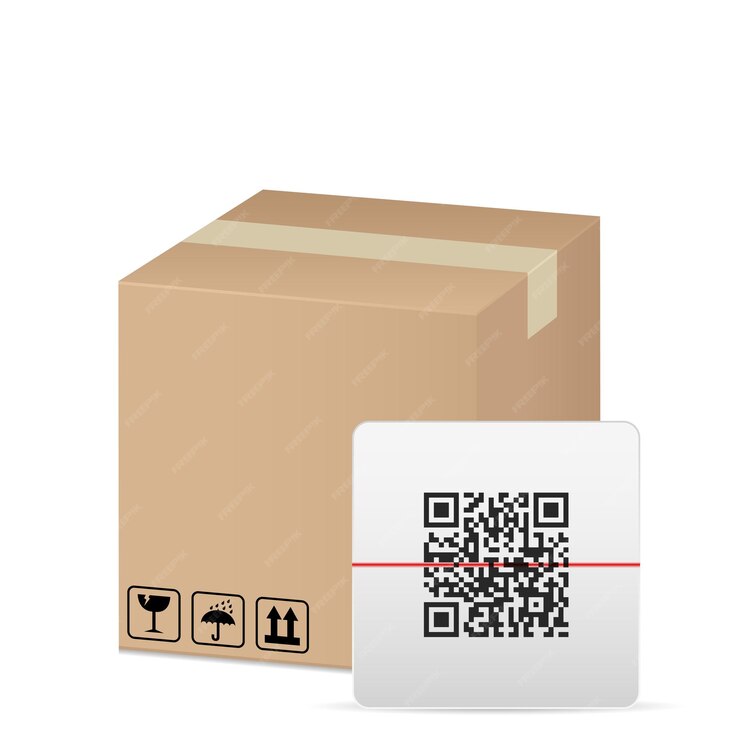
Types of Information a QR Code Can Store:
- URLs: Most commonly, QR codes are used to link to websites or specific landing pages.
- Text: Plain text that can be displayed on a smartphone or other device when scanned.
- Contact Information: vCard’s or business card information, such as a name, phone number, and email address.
- Wi-Fi Network Info: Allows users to quickly connect to a Wi-Fi network without typing in the password.
- Geolocation: GPS coordinates that take the user to a specific location on a map.
- Emails or SMS: QR codes can encode a pre-written email or SMS message that can be sent with a single scan.
Uses of QR Codes:
- Marketing and Advertising: QR codes are frequently used in print ads, posters, and product packaging to provide quick access to promotional content, websites, or special offers.
- Payments: QR codes are used in mobile payment systems (e.g., PayPal, Venmo, WeChat Pay) to facilitate contactless transactions.
- Ticketing and Event Check-in: Many events, flights, and services use QR codes for ticket verification or check-in purposes.
- Product Tracking: Almost, QR codes are used in inventory management, logistics, and product tracking to quickly access details about a product’s origin, manufacturing process, or location.
- Authentication: Lastly, QR codes can be used for multi-factor authentication in online systems or apps, requiring users to scan a code from their phone to verify their identity.
Serialization barcodes are a type of barcode that encodes unique identifiers for individual products, units, or items, allowing each item to be tracked and traced throughout its lifecycle. The primary use of serialization barcodes is to provide uniqueness to each product, making it possible to monitor and manage items at an individual level. Moreover, These barcodes can be applied in various industries to improve inventory control, product tracking, and data collection.
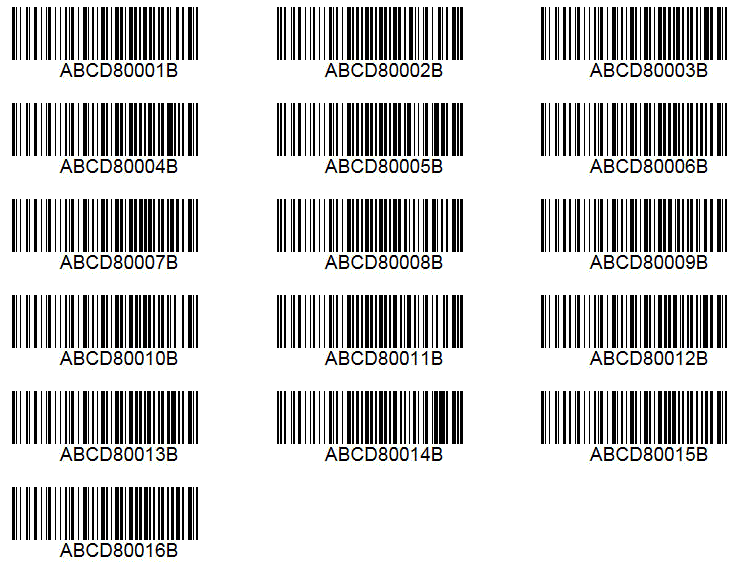
Being a top QR Code Barcode Manufacturer. Here are some key uses of serialization barcodes:
1. Product Tracking and Traceability
- Supply Chain Management: Although, Serialization barcodes allow companies to track products from manufacturing to distribution and retail. This ensures that each individual unit is traceable at every stage of the supply chain, improving visibility and accountability.
- Counterfeit Prevention: By giving each product a unique identifier, serialization helps prevent counterfeiting and ensures the authenticity of products. This is especially important for industries such as pharmaceuticals, luxury goods, and electronics.
- Recall Management: In the event of a product recall, serialized barcodes allow manufacturers to quickly identify and locate affected units. This can significantly reduce the scope and cost of a recall.
2. Inventory Management
- Real-time Tracking: Serialization barcodes enable the real-time tracking of inventory. Each unit is assigned a unique barcode that can be scanned as it moves through storage, shipment, or sales processes.
- Improved Stock Control: Serialization ensures that products are correctly inventoried and minimizes the chances of stock-outs, overstocking, or misplacement.
- Automation: In warehouse and distribution centers, serialized barcodes enable automated systems to track and manage products without manual input, speeding up operations and reducing human error.
3. Quality Control and Compliance
- Regulatory Compliance: In industries like pharmaceuticals, food, and medical devices, serialization barcodes help businesses comply with regulatory requirements such as the Drug Supply Chain Security Act (DSCSA) or the European Union Falsified Medicines Directive (FMD). These regulations mandate that each product unit be serialized for better traceability and verification.
- Product Authentication: Serialization ensures that each product can be authenticated to ensure it meets specific quality standards, reducing the risk of fraud, counterfeiting, or the sale of substandard goods.
- Batch and Lot Tracking: Serialization allows for precise tracking of individual items, which is crucial for monitoring batch or lot quality during manufacturing and in case of product quality issues.
4. Manufacturing Process Monitoring
- Assembly Line Management: Ultimately, Serialization barcodes can be used in production lines to track individual components or products through various stages of manufacturing. This helps in identifying where in the process any defects may have occurred.
- Equipment Maintenance: Manufacturers can track the use of specific items, tools, or machinery by assigning serialized barcodes to them, ensuring proper maintenance schedules and replacement tracking.

5. Returns and Warranty Tracking
- Return Authorization: Futhermore, Serialization makes it easy to track and manage product returns by identifying the exact unit being returned. This helps streamline the returns process and improves customer service.
- Warranty Claims: As a result, Serialization enables manufacturers to track warranty status and validate claims based on the unique identifier of each product, ensuring that only eligible items are covered under warranty.
6. Retail and Consumer Applications
- Personalized Marketing: Generally, Serialized barcodes can enable direct communication with customers by linking individual products to specific customer profiles or purchasing history, which can be used for personalized offers or promotions.
- Loyalty Programs: In fact, Retailers can use serialization barcodes to link products with loyalty programs, offering consumers discounts or rewards based on the specific product they purchase or use.
- Anti-theft Measures: Serialization barcodes help deter theft and reduce inventory shrinkage by making it more difficult to sell counterfeit or stolen goods.
7. E-commerce and Shipment Tracking
- Order Fulfillment: In addition, Serialization barcodes make it easier for e-commerce businesses to track individual products and shipments. They provide a unique identifier for each item sold, helping businesses fulfill orders accurately and efficiently.
- Customer Experience: Also, Serialization allows customers to track their purchased products at a detailed level, providing transparency about the product’s journey from warehouse to delivery.
- Shipping Accuracy: Each serialized barcode allows shipping companies to easily verify that the correct product is shipped to the customer.
8. Asset Tracking
- Equipment and Tools: Businesses use serialized barcodes to track valuable assets, including machinery, computers, and vehicles. Serialization makes it easier to manage and ensure that assets are used and maintained properly.
- IT Equipment: In industries like IT and telecommunications, serialized barcodes help track computers, routers, and other devices.
9. Pharmaceuticals and Medical Devices
- Serialization in Pharmaceuticals: Being a QR Code Barcode Manufacturer, We specialize in Serialization in the pharmaceutical industry is essential for compliance with laws.
- Medical Devices: Serialization is also important in the medical device industry, where each device is tracked individually for quality assurance, patient safety, and regulatory compliance.
10. Event Ticketing
- Unique Event Tickets: Although, Serialized barcodes are often used in the ticketing industry, where each ticket is given a unique serial number. Certainly, This ensures that no ticket is duplicated, reducing fraud and ensuring that only valid tickets are used for admission.
- Access Control: Additionally, serialized tickets can be scanned to ensure right individuals are entering the venue.
Benefits of Using Serialization Barcodes:
- Improved Accuracy: Serialization reduces the chances of human error when tracking individual items, ensuring that each product is properly accounted for.
- Increased Efficiency: Automated processes, such as scanning serialized barcodes, reduce manual work, speeding up inventory management, shipping, and other operations.
- Enhanced Security: Certainly, Serialized barcodes help prevent counterfeit products, unauthorized sales, and theft.
- Better Data Management: Overall, The unique identification provided by serialization allows businesses to collect and analyze detailed data on each item, improving decision-making and process optimization.
- Compliance and Reporting: Serialized barcodes help companies meet regulatory requirements by providing the necessary data for audits and compliance reports.
Advantages of QR Codes:
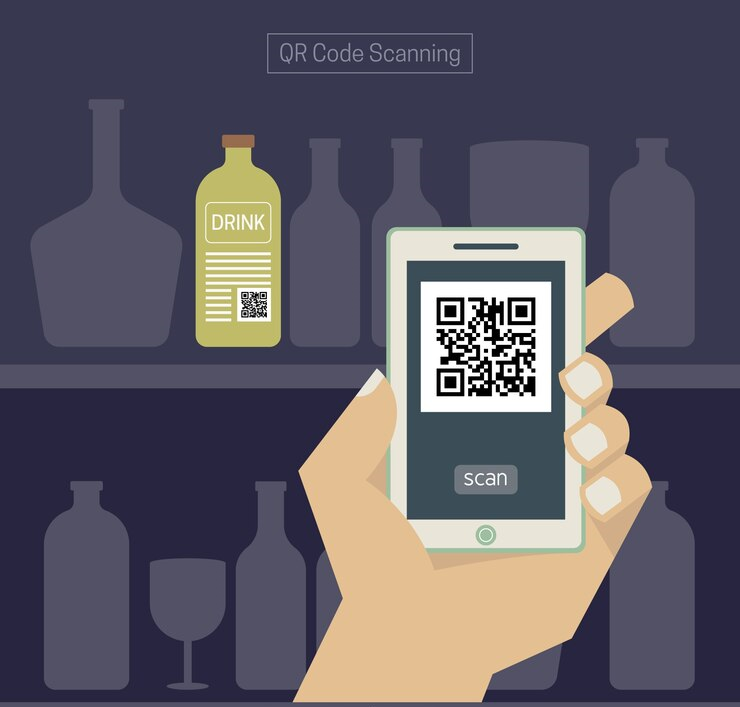
- Fast and Convenient: They can be scanned quickly using a smartphone or dedicated QR code scanner.
- Space-Efficient: Can store a lot of data in a compact format, much more than traditional barcodes.
- Versatile: Can encode different types of data, from simple URLs to complex contact information.
How to Scan a QR Code:
- Smartphone: In general, modern smartphones (iOS and Android) come with built-in QR code scanners in their camera apps. You just need to open your camera app and point it at the QR code.
- QR Code Apps: There are also dedicated QR code reader apps available in app stores.
- Webcam or Barcode Scanners: In business environments, specialized scanners can be used to read QR codes.
History of QR Codes:
QR codes were first developed in 1994 by Denso Wave, a subsidiary of Toyota, to track vehicle parts during manufacturing. Since then, they have evolved into a widely adopted tool for quick data retrieval, particularly in mobile and digital applications.
Conclusion:
Barcode International is QR Code Barcode Manufacturer, QR codes are a versatile and efficient tool for encoding and sharing information. Whether for marketing, payments, product tracking, or event management.